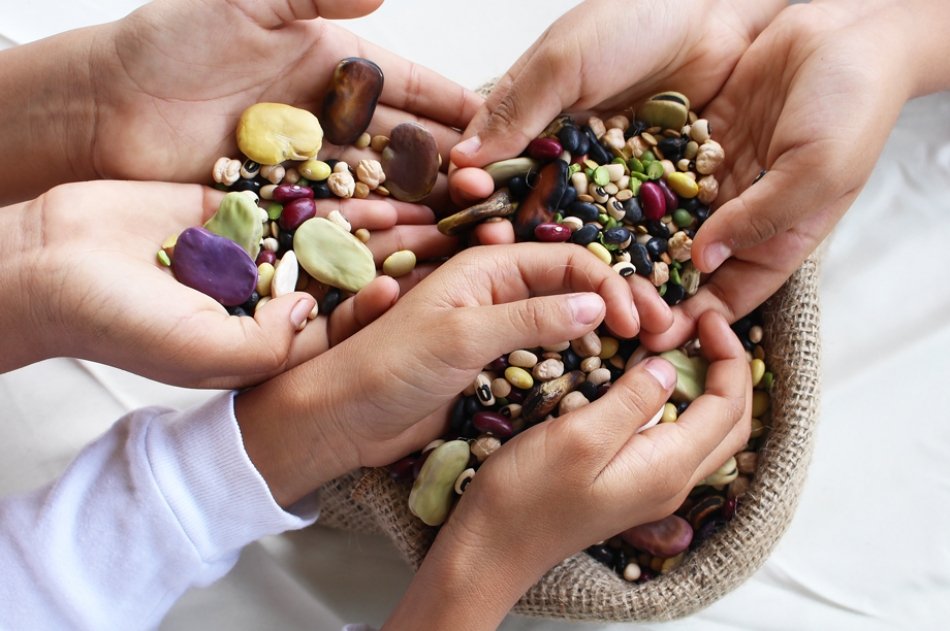Geneva, 10 February 2023 (TDI): The United Nations (UN) declared 10 February as World Pulses Day, started with the international campaign by World Food Organization (FAO) in 2016.
The aim to celebrate this day is to keep alive the positive momentum surrounding these healthy, nutritious, and protein-rich legumes.
Why Pulses are Important
Pulses are considered a ‘protein for the poor’ in many cultures and societies, especially in third-world countries.
Moreover, the high nutrient content of pulses makes them ideal for vegetarians and vegans to ensure adequate intakes of protein, minerals, and vitamins.
One can observe that vegetables are everywhere, such as at the grocery store, the farmer’s market, and as side orders served with our favorite dish in restaurants. Pulses are considered cultural heritage in many countries and are consumed on regular basis.
For example, in Asian countries like Pakistan and India, pulses are consumed regularly due to their vegan quality. They are considered a staple food in poor countries.

Also, in other parts of the world, pulses are only used in soups during winter. There are many ways to incorporate pulses into daily diet as they are excellent for health.
Pulses are an affordable source of protein and minerals for a large proportion of rural populations and people allied with the agricultural sector in the world.
They are a great meat substitute, especially red meat. Nonetheless, pulses are delicious, affordable, and a great way to reduce food insecurity and create zero hunger all around the world.

These tiny, multi-colored seeds are one of nature’s most nutritious foods since time began, because of their nutritional content. Some of the details about it are mentioned below:
Low in Fat
Pulses are naturally low in fat, as they contain no cholesterol, which could contribute to reducing the risk of cardiovascular diseases.
In the Western world, people are more attracted to processed red meat so this is causing various health issues.

Pulses are an effective way to achieve daily protein intake and cause of reduction of diseases caused by the overuse of red meat.
Low in Sodium
Pulses are also low in sodium, as sodium is a contributor to hypertension. So substituting pulses with high-sodium food is an effective way to control hypertension.
Source of Protein
Pulses are a great source of plant-based protein, around 100 grams of dry lentils contain a remarkable amount of protein that is around 25 grams.

Though, during cooking, pulses absorb considerable amounts of water thus reducing their protein content to around 8 percent.
Nevertheless, pulses are an efficient source to add quality protein to your diet, to increase its protein content one may eat it with rice or wheat bread.
Source of Iron
Pulses are a very good source of iron, as iron deficiency is considered one of the most prevalent forms of malnutrition and is one of the most common types of anemia, especially in children.

So, to help optimize the absorption of iron in human bodies from pulses, one may combine them with foods containing vitamin C, for example, lemon juice in lentil curry.
High in Potassium
Pulses are high in potassium, which plays a vital role in supporting heart health. It was also very significant in role digestion and muscular functions.
High in Fibre
Pulses are considered one of the foods that contain high amounts of fiber. Fibre is necessary for supporting digestive health and helping to reduce the risks of cardiovascular diseases.
Source of Folate
Pulses are an excellent source of folate which belongs to the group of vitamin B.

This vitamin is naturally present in many foods that are essential to the nervous system function and especially important during pregnancy to prevent fetal defects.
Low Glycemic Food
Pulses are low glycemic index foods, they help to stabilize blood sugar and insulin levels. Thus, making pulses suitable for people with diabetes and ideal for weight management.
Gluten-Free Diet
Pulses are naturally gluten-free, which makes them an ideal option for people suffering from gluten allergies.
Pulses can be stored for Long
Pulses can be stored for a long time and therefore can help to increase the diversity of diets, especially in developing countries.
Iqra is a research scholar. She writes on various platforms. She is the author of two books. Her research interest includes politics, International relations, diplomacy, peace, and conflict studies, public administration, sociology and history.








